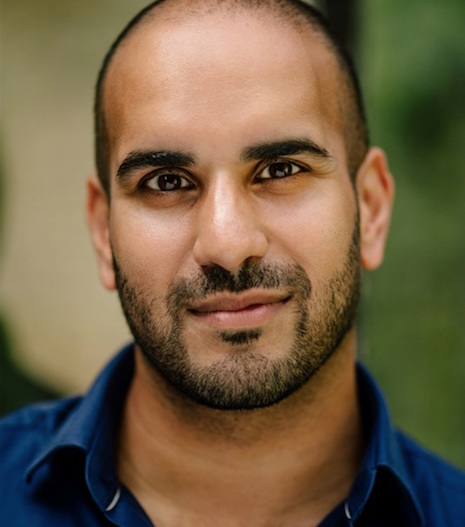 Michael Olaye is CEO of Dare
Michael Olaye is CEO of Dare
By Michael Olaye and Jamal Cassim The Internet is great for many things, but a lovely dinner out is not one of them. After all, the essential sensory qualities – ambience, taste, smell, those all-important origami napkins – just do not translate well to pixels. Substance of it Luxury brands looking to create their digital experience thus fall upon one of two responses. The first is a full-blooded attempt to bludgeon audiences with every ounce of slow-motion video, overwrought copy and product porn that can fit on a screen. A literalist replication of premium values, these attempts are usually accompanied by some nice style-over-substance touches that sacrifice good user interface and lead to nightmarish load times. The other response is elegant absence, keeping things subtle and functional. After all, all a user might want to do online is book a table. But fragmented touch points have turned every interaction into one that reflects on the brand, good or bad. It is all too easy for a desirable brand to become just another thumbnail. Brands in the luxury space, where so much equity is based on the emotional rather than the literal, face added pressure in making digital work for them. So what to do? Food for thought Luxury brands must first understand that control is an illusion. Many have mastered the art of immersive environments. London restaurant Gilgamesh spent $21.5 million on its lavish build. Apple’s obsession with its retail spaces is well documented. But in the digital world, variances in hardware from screen size to connection speed mean that look and feel needs to be dynamic rather than prescriptive. More problematic is the increasing role of aggregators in brokering experiences. Hospitality brands feel the pressure from the likes of Booking.com and OpenTable, which can control the entire booking process flow and own customers’ data. Meanwhile, the torturous Burberry online shop experience falls short when the likes of Mr. Porter have already nailed editorial ecommerce. Replicating an experience already beloved by consumers is certainly a good place to start. We all know of brands that insist on using studio-quality content in their Snapchat channels – manicured visuals that sat poorly on the platform’s raw style. Far better the playful approach adopted by the likes of Chanel and Gucci at their best. They pivot cleverly between a strong sense of their own brand and the often vapid, nonsensical culture of the Internet. But so much of this really misses the point. What pops out The most compelling success for a luxury brand, though, is to look to the core principles that allowed an immense price premium in the first place. Great restaurants are built not just on great food and great ambience, but great service. The brands that will thrive are those that are able to overcome their natural tendencies to self-obsess and genuinely put customers first. Technology is not just about translating the glossy imagery of Vogue to the glossy imagery of Vogue.com. It enables us to scale what were previously intimate, masterful connections between staff and customers to enable the whole organization to offer consumers more tailored, personalized and seamless experiences, at scale. Luxury fashion brand Hermès does a great job of modulating its tone. Its online pop-up virtual store, lamaisondescarres.com, is an elegant representation of a virtual house. Yet on social, it is quirky and fun, never shy with a gif. Everlane embraces some of the new rules of luxury, unfussily presenting its wares and telling the product stories with radical transparency, right down to its relationships with the factories. In both cases, these brands considered how premium brands must adapt to new audiences and channels. TECHNOLOGY OFFERS us the chance to create smart, tailored online experiences that adapt seamlessly to individual customers. For those who are in a hurry, you can direct them straight to your conversion page. For the curious, there can be a path of rich, ongoing brand storytelling. The best of what you want, or something better. Is that not what luxury is all about?
 Jamal Cassim is managing partner of Dare
Jamal Cassim is managing partner of Dare
